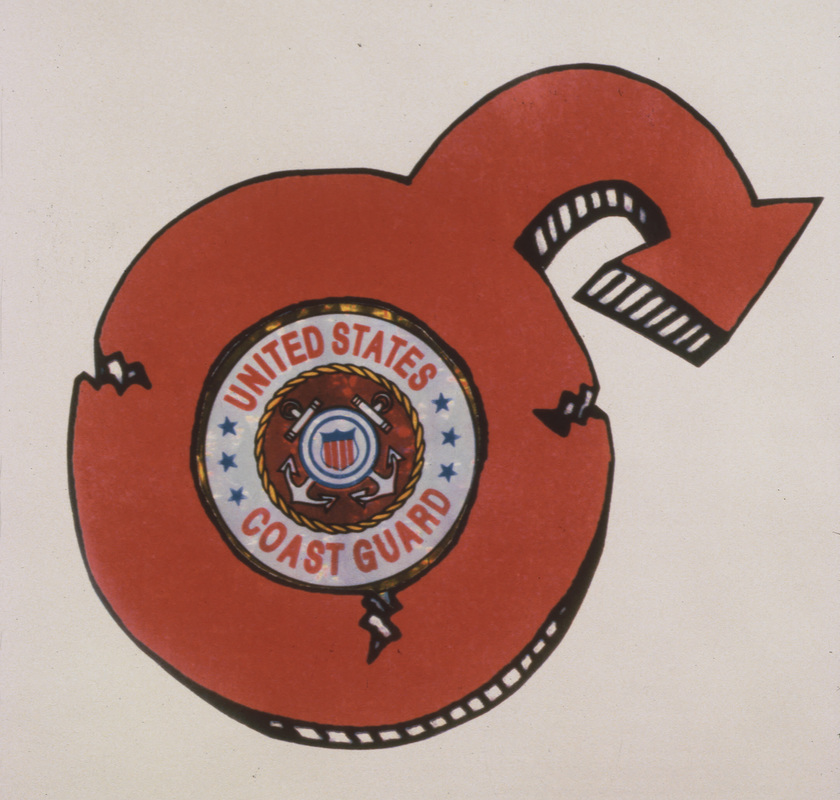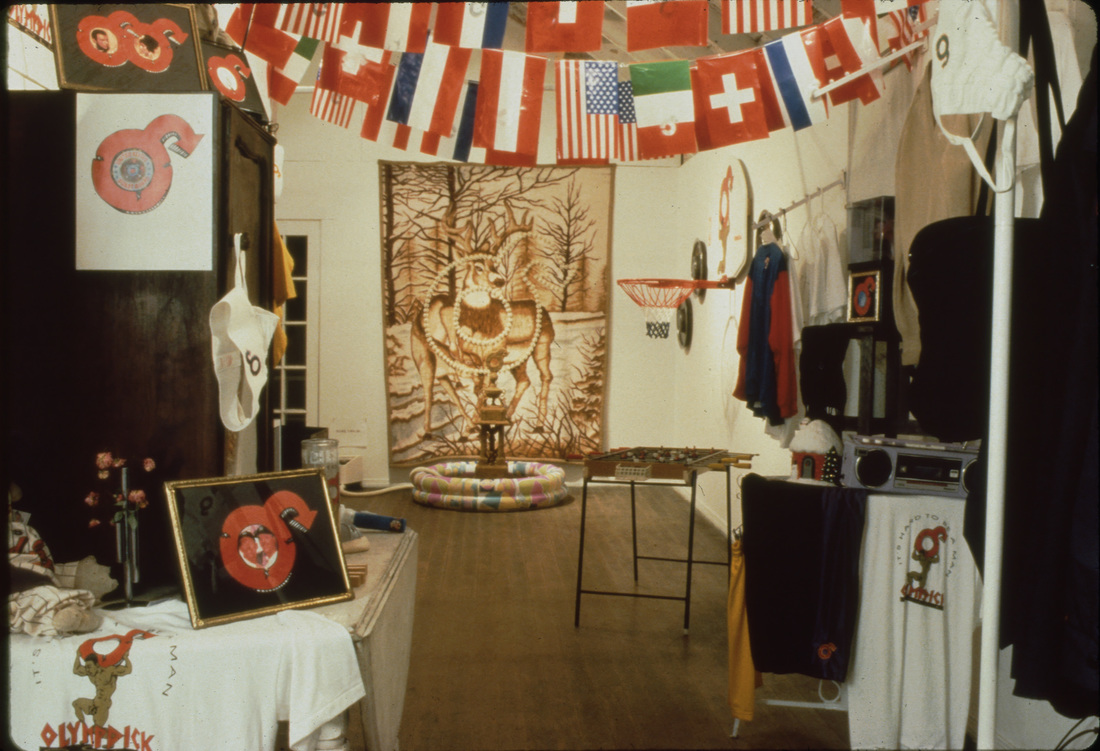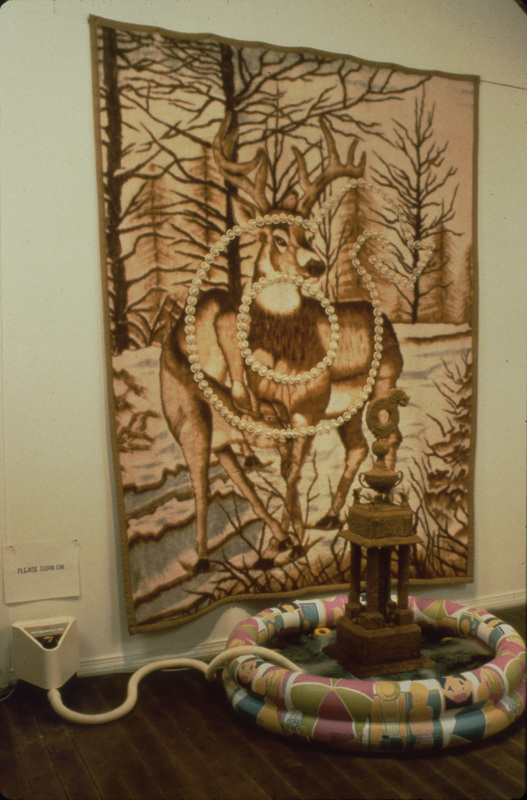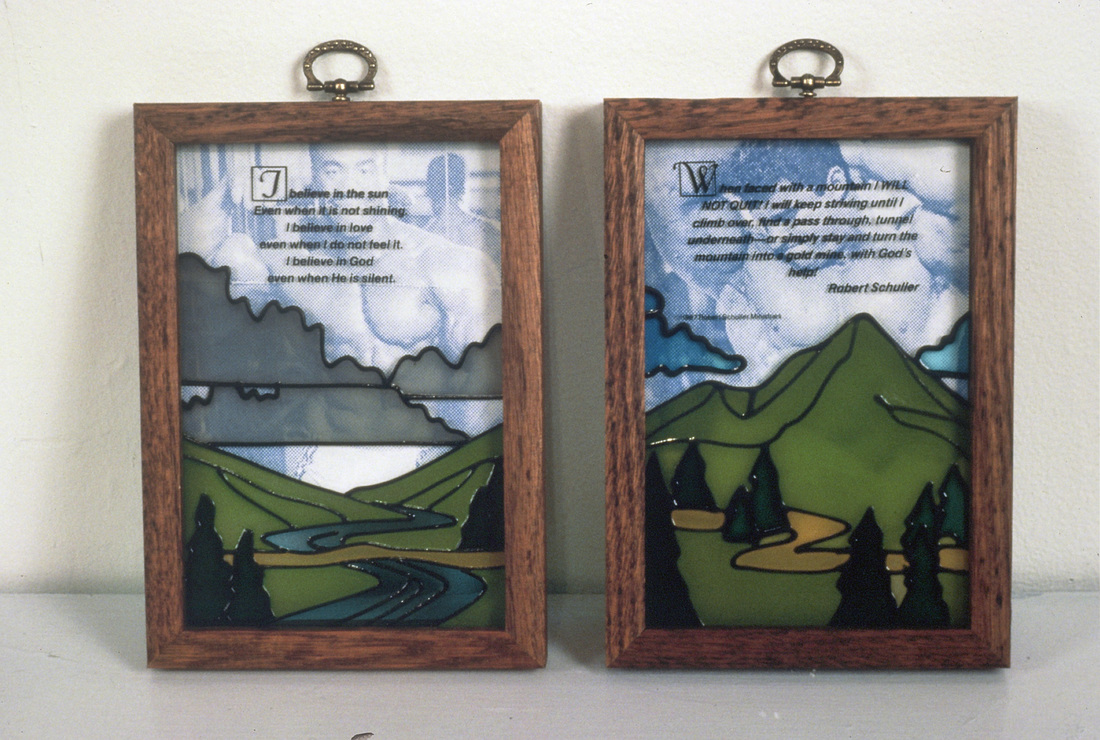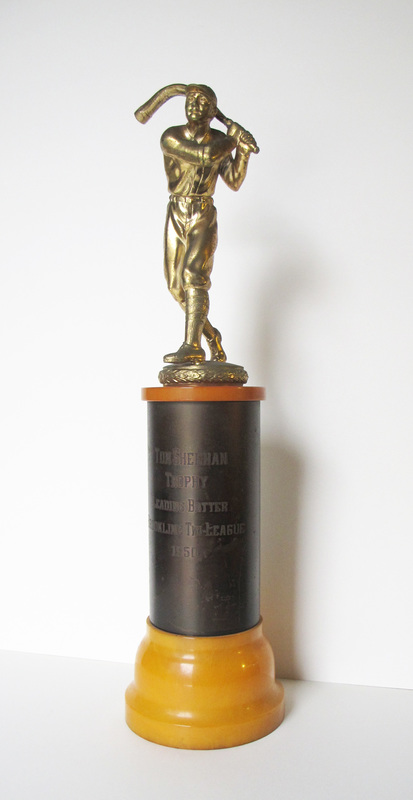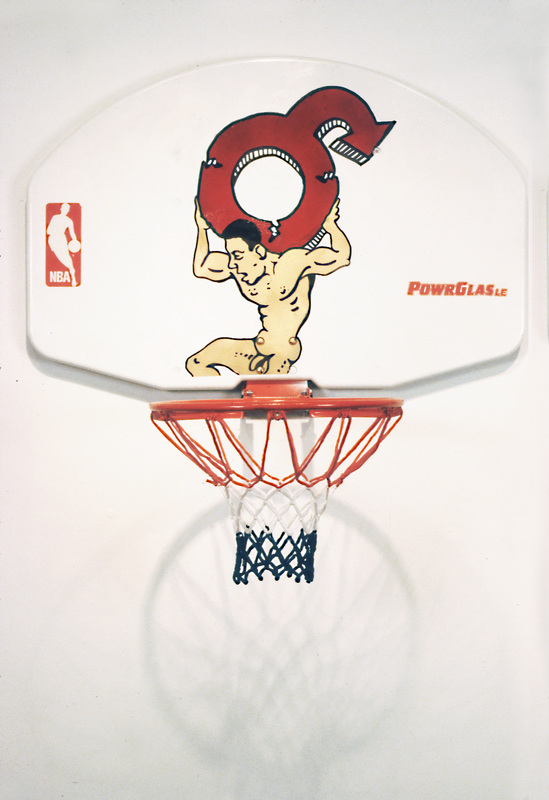OLYMPDICK GOLD - it's hard to be a man

One year before the city’s role as host to the Summer Olympics, the Arts Festival of Atlanta extended an invitation to Jay Critchley to use his particular set of subtle, satirical, and imaginative skills, and he chose to make a formal investigation of sports, masculinity, sexism, racism, and classism.
Critchley dug in. He learned that the rise of sports culture in America was directly linked to the rise of industrialization in the mid 1800s, which bumped boys off the farm and toward the cities for work. Sports teams and leagues were fashioned as an antidote to the perceived fading virility of these young men, who for so long had used their bodies for work.
The artist responded with Playing Games: Zoa the Greek Fertility Goddess Shoots for the Gold: a paper doll cutout book of athletes that explored the history of the Olympics. Critchley was surprised to learn from festival lawyers and from Coca Cola, the premier Olympic sponsor headquartered in Atlanta, that the word “Olympic” is not legally available for public use.
Known for his playful appropriation of language and terminology, Critchley hatched his own variation of the term: Olympdick Gold—It’s Hard To Be A Man, which evolved into an ongoing art project that focused on the culture and history of the Olympic Games.
Olympdick Gold was represented by a reincarnation of the male symbol with a limp arrow, for which Critchley received his second US Trademark. A line of Olympdick clothing and consumables followed, as well as the creation of the theater piece “Lympdick Diatribes” at Harvard University, where Critchley was an artist in residence from 1999–2000.
Of the play, the Harvard Crimson wrote, “The Office for the Arts brings many odd people to Harvard. Some are musicians, some are artists, others write plays about flaccid organs. Jay Critchley is one such invited guest . . . a perversely witty original manifesto of cock that mocks The Vagina Monologues, embraces bestiality, and addresses such problems as a constant erection.”
Critchley dug in. He learned that the rise of sports culture in America was directly linked to the rise of industrialization in the mid 1800s, which bumped boys off the farm and toward the cities for work. Sports teams and leagues were fashioned as an antidote to the perceived fading virility of these young men, who for so long had used their bodies for work.
The artist responded with Playing Games: Zoa the Greek Fertility Goddess Shoots for the Gold: a paper doll cutout book of athletes that explored the history of the Olympics. Critchley was surprised to learn from festival lawyers and from Coca Cola, the premier Olympic sponsor headquartered in Atlanta, that the word “Olympic” is not legally available for public use.
Known for his playful appropriation of language and terminology, Critchley hatched his own variation of the term: Olympdick Gold—It’s Hard To Be A Man, which evolved into an ongoing art project that focused on the culture and history of the Olympic Games.
Olympdick Gold was represented by a reincarnation of the male symbol with a limp arrow, for which Critchley received his second US Trademark. A line of Olympdick clothing and consumables followed, as well as the creation of the theater piece “Lympdick Diatribes” at Harvard University, where Critchley was an artist in residence from 1999–2000.
Of the play, the Harvard Crimson wrote, “The Office for the Arts brings many odd people to Harvard. Some are musicians, some are artists, others write plays about flaccid organs. Jay Critchley is one such invited guest . . . a perversely witty original manifesto of cock that mocks The Vagina Monologues, embraces bestiality, and addresses such problems as a constant erection.”
